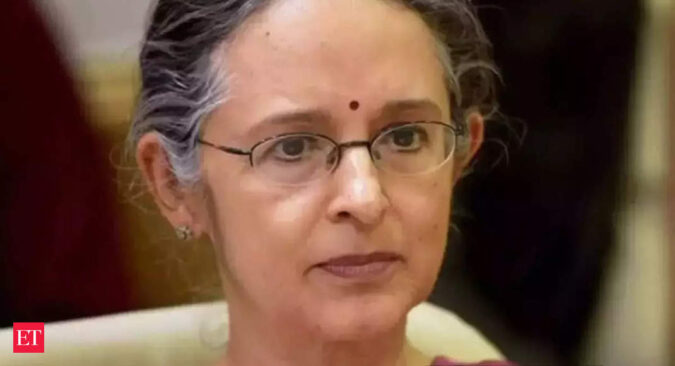“As many people have flagged, if you are moving towards higher inflation rates in the rest of the world because the China factor that was keeping inflation low is moderating, then maybe, we need to rethink our long-term inflation target or could be that the (inflation) gap between India and the rest of the world will go,” she said.
Goyal also said that the distribution of weights in the inflation basket needs to be revised, joining others seeking urgent changes to the way the nation collects and uses its data. “These weights are based in 2012, and a lot of change has happened since then,” she said. The government should revise the weights and there are “various discussions going on with them,” Goyal added.
A debate on aligning India’s data with the changes in the economy has gained momentum after consumer inflation breached RBI’s tolerance limit of 6% for two straight months. The Reserve Bank of India (RBI) has raised its benchmark repo rate by 250 basis points since May last year with expectations of another 25 basis points hike to 6.75 per cent in April before hitting pause until year-end.
The RBI lowered the consumer price inflation (CPI) forecast to 6.5 per cent for the current fiscal from 6.7 per cent. India’s retail inflation in January was 6.52 per cent.
Economists have blamed over-estimation of cereal prices and antiquated data collection practices for the unexpected rise in the number used for deciding interest rates.
Goyal voted for a pause in the last policy meeting in February, preferring to wait for past rate actions to catch up. She continues to support that position and “hope that logic is appreciated by other MPC members” when they meet again next month.Goyal also batted for central bankers to allow rate hikes to take effect. “It takes a few quarters for interest rate rises to take effect on demand and demand-led inflation and it is appropriate to watch for some time, allow these to take effect,” she said.
“You cannot just keep raising rates until inflation starts falling. That is a receipt for over-reaction, overtightening and creating financial instability,” Goyal added.
